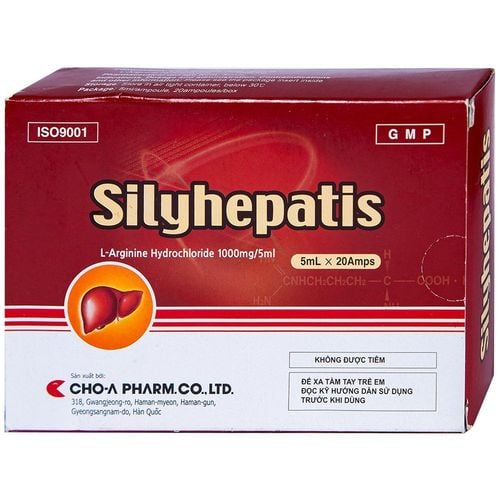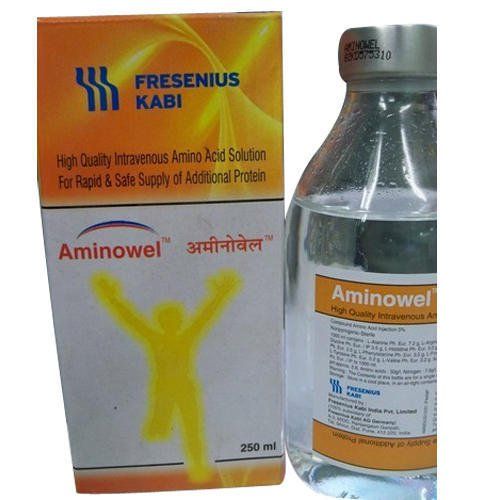This is an automatically translated article.
Atigimin medicine contains the main ingredient is Arginine hydrochloride 1000mg, packed in box of 30 tubes x 10ml. The drug is in the form of an oral solution. Before using Atigimin, patients should consult a pharmacist or a specialist. The following is some information to help better understand what Atigimin does?
1. What effect does Atigimin have?
The drug contains the main ingredient is Arginine hydrochloride. This is an amino acid that participates in the process of urea in the blood and has the effect of regulating the concentration of ammonia in the blood for patients with deficiency of enzymes such as: N-acetylglutamate synthase (NAGS), Carbamyl phosphate synthase (CPS). ), Argininosuccinat lyase (ASL), Omithin transcarbamylase (OTC) or Argininosuccinat synthase (ASS).
Active ingredient Arginine hydrochloride also has the ability to increase blood glucose levels of patients.
2. Indications for taking Atigimin 1000mg
Atigimin is usually indicated for:
Maintenance treatment of elevated blood ammonia in people with some enzyme deficiency. Support nutritional supplements for people with Citrulin blood, increased Ammonia in the blood or Arginosuccinicuria. Support in the treatment of dyspepsia. Support treatment for people with stable cardiovascular disease. In addition, Atigimin is also combined with Aspartat or Ornithin to help detoxify the liver and regulate excess Ammonia in the body. Thereby supporting liver detoxification, treating hepatitis, cirrhosis and lowering cholesterol.
3. Contraindications to taking Atigimin
Atigimin is contraindicated in the following cases:
The patient is sensitive to any of the ingredients of Atigimin 1000mg. People with increased levels of ammonia in the blood due to organic acidosis. People with disorders in the urea cycle due to Arginase deficiency.
4. Dosage and how to use Atigimin
How to use: Atigimin is used orally. Patients can take Atigimin directly, without mixing with water to get the best treatment effect.
Dosage:
Treatment of hyperammonemia.
For infants: Use dose of 100 - 175 mg/kg/day, x 3-4 times/day. For children under 18 years old: Use dose of 100 - 175 mg/kg/day x 3-4 times/day. To supplement nutrients for people with hyperammonemia:
For adults: Use a dose of 3 to 20g/day depending on the disease condition. Treatment of dyspepsia in adults:
Take 3-6g/day. Supportive treatment for people with stable cardiovascular disease:
Adults: Dose 6-21g/day. No more than 8g each time. Note: The above dosage of Atigimin is for reference only. The specific dose of Atigimin depends on the condition and the progression of the disease. To get the right dose of Atigimin, patients should consult their doctor or healthcare professional.
5. No side effects of Atigimin 1000mg
At therapeutic doses, Atigimin is well tolerated. However, in the process of using Atigimin, patients may still experience side effects such as:
Common:
Headache and frostbite; Vomiting; Increase body temperature. Rare:
Edema and rash; Anaphylactic shock reaction. Side effects with unknown frequency:
Hypotension. Increase nitric oxide exhalation. Abdominal distention and abdominal cramps; Increased release of growth hormone; Increased levels of potassium in the blood in people with diabetes, liver or kidney disease; Increased serum creatinine and blood urea nitrogen levels. If you experience these symptoms, the patient should stop using Atigimin and notify the doctor for appropriate treatment.
6. Atigimin drug interactions
Atigimin may have an interaction reaction if used concurrently with:
Estrogen and Progestrogen oral contraceptives: May increase the response of growth hormone and decrease the response of Glucagon or insulin to Arginine hydrochloride. Thiazide, Aminophyllin and Xylitol diuretics: Increases plasma insulin concentrations. Sulfonylureas: May interfere with plasma glucagon response. Phenytoin: Will decrease the plasma insulin response to Atigimin. Potassium-sparing diuretics: Combined with Atigimin will increase the risk of hyperkalemia. To avoid interactions, before being prescribed Atigimin, patients should inform their doctors about all the drugs they are using, including functional foods. The doctor will base on that to prescribe the appropriate Atigimin.
7. Note when taking medicine
Note when using Atigimin for pregnant women. There are not many studies that fully demonstrate whether Atigimin crosses the biological barrier into breast milk. Therefore, patients need to consult a doctor to get the most specific instructions. A common side effect of Atigimin is frostbite or headache. Therefore, caution should be exercised when administering Atigimin to drivers and operators of machines. An overdose of Atigimin can cause transient metabolic acidosis with hyperventilation. Overdose of Atigimin in young children can also lead to cerebral edema, renal tubular metabolic acidosis, and even death. Patients need to stop the drug immediately and go to the nearest medical facility for timely treatment. In the event that a dose of Atigimin is missed, it should be supplemented as soon as possible. However, if it is almost time for the next dose, skip the missed dose of Atigimin and use a new dose.
8. Notes when using Atigimin
Care should be taken when administering Atigimin to people who drive or operate machinery. Atigimin should be used with caution in people with severe liver and kidney failure. Absolutely do not use when Atigimin has signs of discoloration, mold, watery or expired. Above is all information about Atigimin drug, patients need to carefully read the instructions for use, consult a doctor / pharmacist before using. Note, Atigimin is a prescription drug, patients absolutely must not buy and treat at home because they may experience unwanted side effects.













